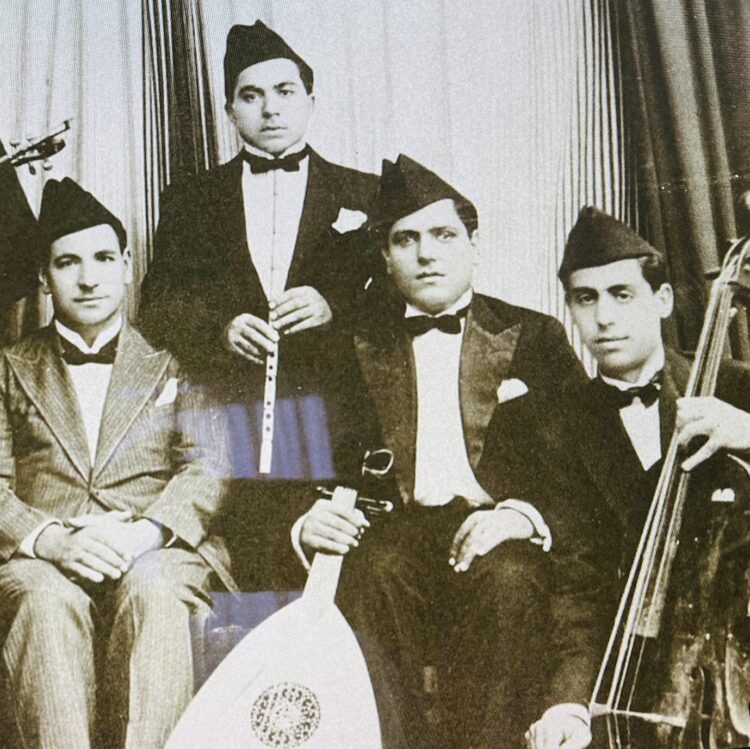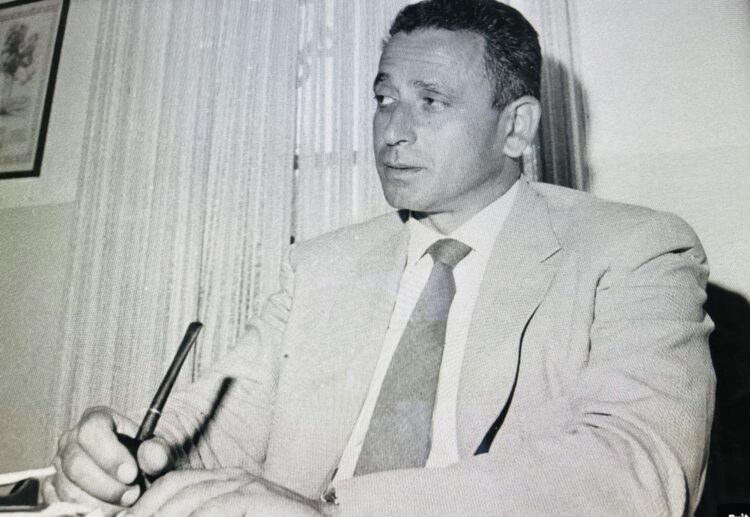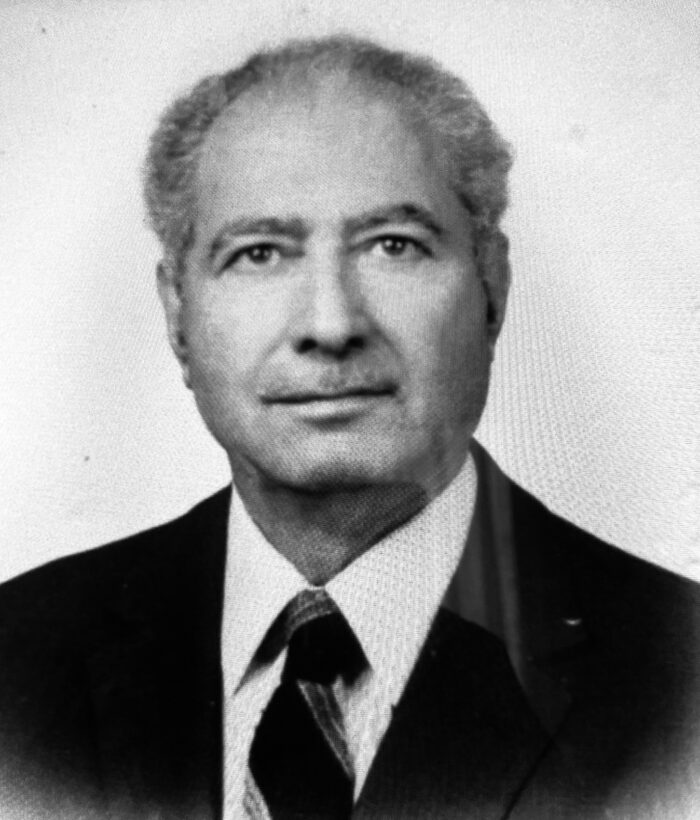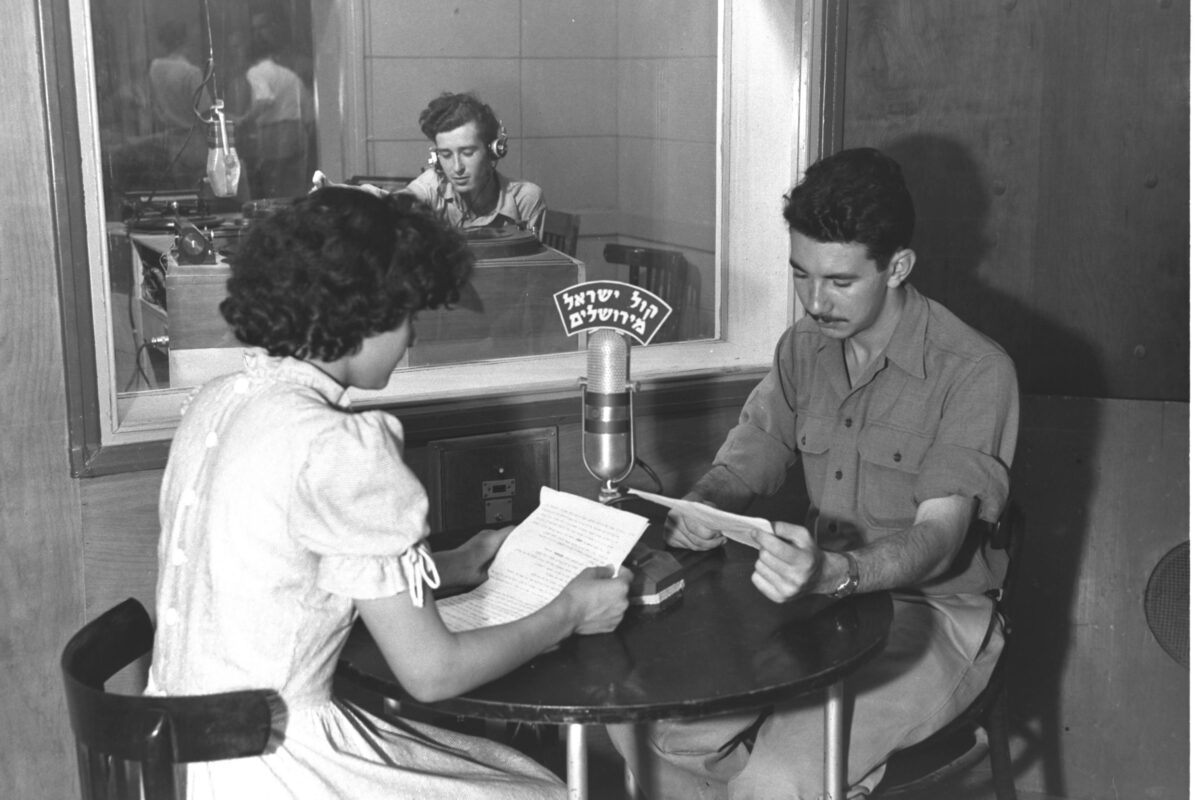The Voice of Israel, or Kol Israel, broadcast special radio programs to the Arab world from the late 1940s onward. Mostly hosted by Arabic-speaking Iraqi Jews superbly acquainted with Arab culture, they were quite popular, judging by the stream of appreciative letters from Arab listeners that landed in an Israeli postal box in Geneva, Switzerland, and by the Egyptian broadcasts that attempted to refute their messages.
They could be heard in countries ranging from Egypt and Syria to Jordan and Lebanon and were regarded by the Israeli government as a weapon of war and a bridge to mutual understanding.
This obscure footnote in Israeli history is examined by Ofer Pinchasov in his fascinating 82-minute documentary, Radio Propaganda, which will be screened on June 2 at the Toronto Jewish Film Festival, which runs from May 30 to June 9.
A form of psychological warfare, or black propaganda, in an era of intense Arab hostility to Israel’s existence and legitimacy, these broadcasts were designed to create deterrence, prevent war and underscore the theme that Israel existed and would continue to exist and thrive.
The broadcasters were largely recruited from a pool of about 120,000 Iraqi Jews who had immigrated to Israel in the late 1940s and early 1950s. They generally felt at home in Iraq until the Palestinian question arose in full fury, creating tense and even dangerous conditions for its Jewish population.
This was a period when Jews in Arab lands were driven out of their homelands after the 1947 United Nations Palestine partition plan — which the Palestinian leadership staunchly rejected — and the proclamation of Israeli statehood a year later, which led five Arab armies to invade Israel.
Arab Jews who immigrated to Israel during its formative years discovered that the Ashkenazi elite regarded Arab culture condescendingly. Some of these immigrants, such as Saleh al-Kuwaity, who had been a prominent musician in Iraq, had to scramble to earn even a basic living in Israel. Rafi Siton, a Syrian Jew who joined the Mossad, said he felt like an alien in Israel, at least for a while.

Still, a small number of the new immigrants managed to find positions in the Voice of Israel in Jerusalem. They broadcast under Arab pseudonyms. Yigal Allon, a well-known Israeli politician, thought they were eminently suitable for their jobs because they were “black” outside and “white” inside. Though politically incorrect, Allon’s comment was typical of the times.

Shaul Menashe presented himself as Bashir Amin, which means good tidings and honesty in Arabic. On the eve of the 1967 Six Day War, he warned the Egyptian government of President Gamal Abdel Nasser that Israel would destroy Egypt’s army if he closed the Strait of Tiran to Israeli shipping and continued to prevent Israeli ships from using the Suez Canal.

Eliyahu Nawi, who went by the name of Daud al-Natur, was one of the star broadcasters. A Jew from Baghdad, he was the son of a merchant and was familiar with Iraq’s Arabic dialects. Since he was assumed to be an Arab, there was a bounty on his head, says his wife Bruria.
Salman Dabi, known as Ibn al-Rafidayn, was another broadcaster. He worked as a freelancer, and after his retirement, he sued the Voice of Israel because it had not given him social security benefits.

The film also draws attention to Marlene Bajaali, an Arab from Jerusalem who was one of the broadcasters on the Voice of Israel’s Arabic service. She played Arab songs, including those of the Egyptian mega-star Uum Kulthum. She insists she did not venture into political commentary in performing her job.
Arabic songs were used by the Mossad to convey instructions to Israeli spies in Arab countries. In one instance, in 1966, a song guided the Iraqi pilot of a Soviet-built MiG-21 to an Israeli Air Force base, an intelligence coup that embarrassed Iraq and delighted Israel and the United States.
Broadcasts to Egypt wound down after Anwar Sadat’s historic visit to Israel in 1977 and Egypt’s peace treaty with Israel in 1979. The introduction of television in Israel also had an impact. Pinchasov glosses over this dimension of Israel’s Arabic broadcasts, leaving a viewer in the dark about its current shows aimed at the Arab world.
